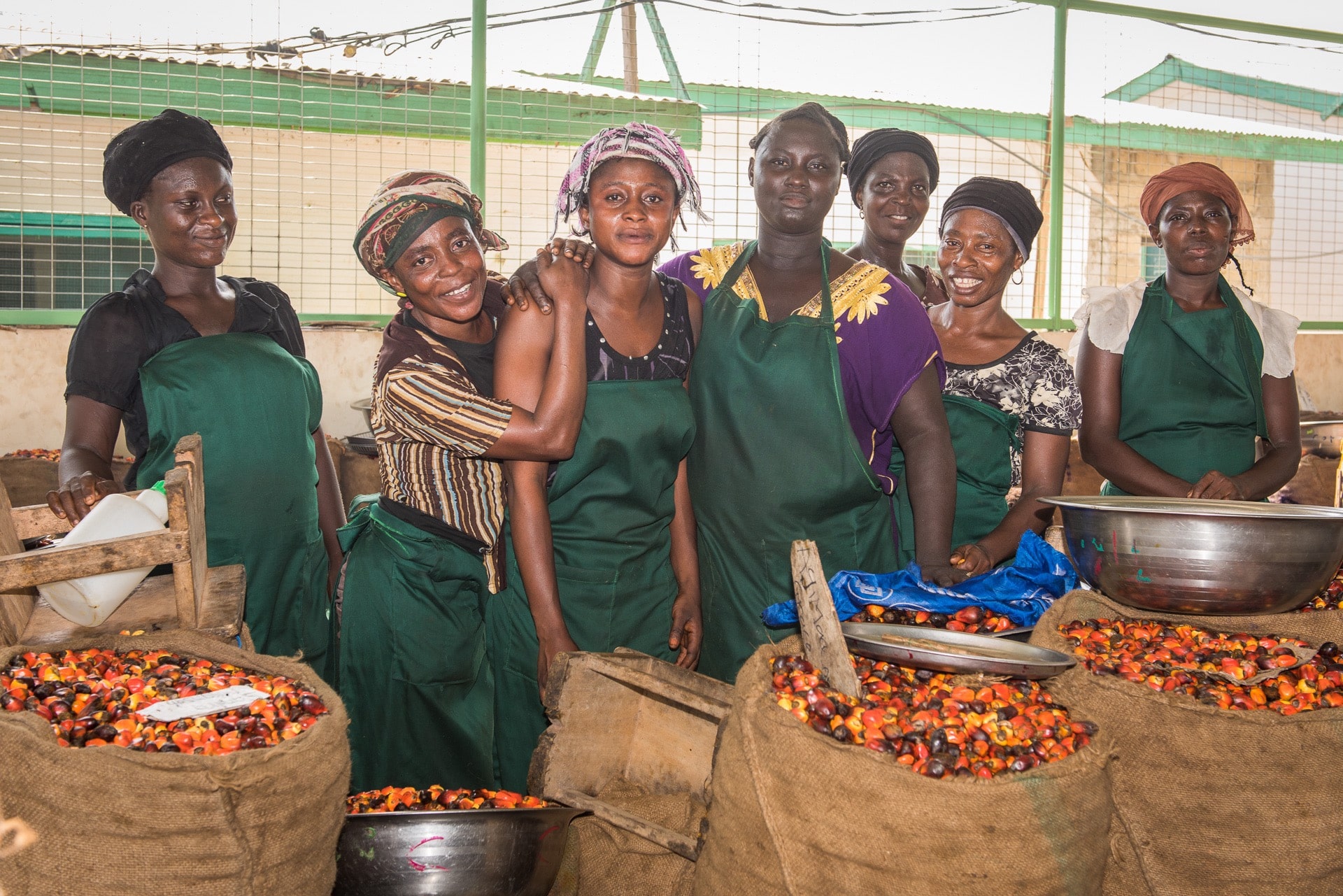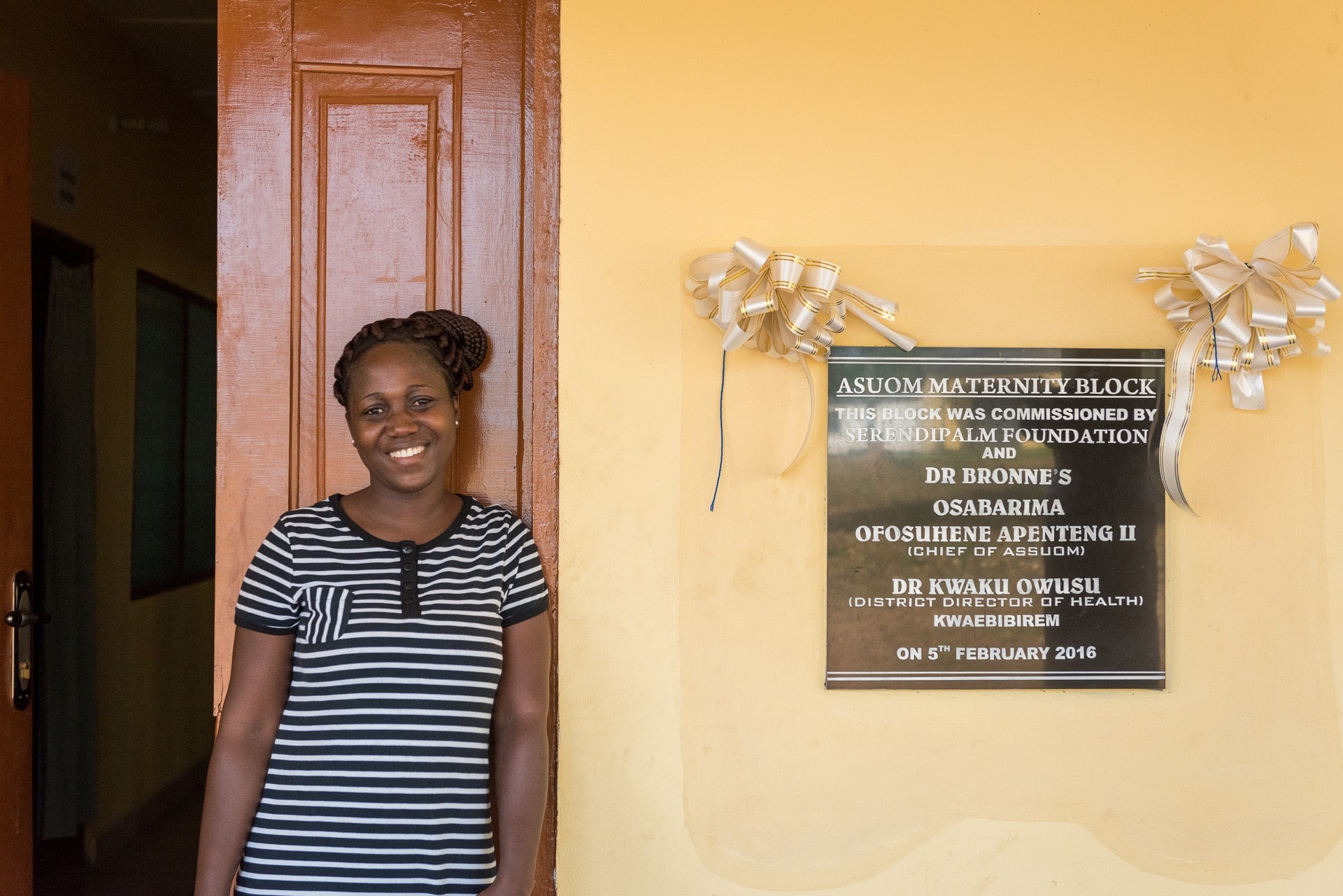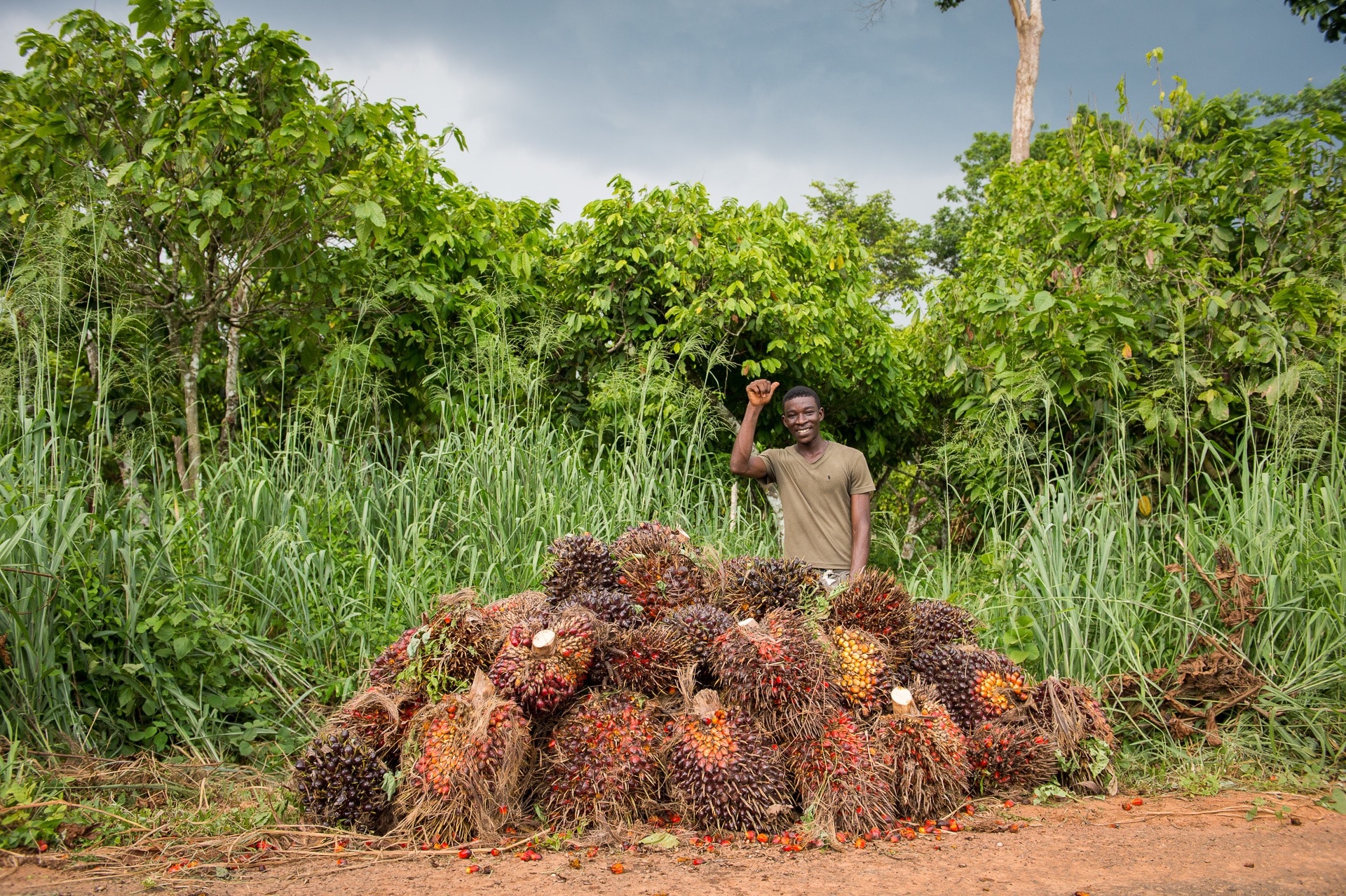In 2012, just hired as a communications associate with Dr. Bronner’s, I began working on a project to support fundraising for the purchase of bed nets to curtail malaria, and support the building of a maternity ward in the local health care facility in Asuom, Ghana, where Dr. Bronner’s palm oil is produced. A great success, the “Help Dr. Bronner’s Fight Malaria in Eastern Ghana” campaign succeeded in raising over $50,000. In the process we also educated many of our consumers about the sustainable, organic and fair trade palm oil used in Dr. Bronner’s bar soaps.
Almost exactly five years later, in November of 2017, I found myself in a small pickup riding over bumpy, orange clay roads through the Eastern region of Ghana, on my way visit Serendipalm.
During my week-long visit I learned that Serendipalm is accomplishing much more than producing palm oil. The company is profoundly impacting the lives of its workers and providing critical resources to the wider regional economy. By pioneering regenerative organic agricultural practices, Serendipalm is also playing a role in combatting climate change.
Dr. Bronner’s sister company Serendipalm sits on a hillside near a main road, surrounded by small homes, free ranging goats and chickens, and beyond that, fields and fields of palm trees. A fair trade operation that employs over 250 workers, and partners with over 700 farmers from the area, Serendipalm produces all of the organic and fair trade palm oil used in Dr. Bronner’s bar soaps, and also sells palm oil to other customers in Europe.
The majority of workers employed by Serendipalm are women, most of whom work cleaning palm fruits by hand. Palm grows in large bunches, like big pinecones, and each orange fruit is covered in a thin husk that needs to be removed before the fruit can be pressed for oil. The women sit in circles, grouped with friends, family and neighbors, and chat while cleaning fruit.

Sitting and speaking with these women, I learned how valuable this job is to them. “This is the best job I could possibly have,” many expressed. “The only reason I will ever quit working at Serendipalm is when I retire,” said one woman, her friend nodding in agreement. “My sisters want to come work here also, but all the jobs are already taken, they have to wait,” another said.
The direct impact the fair trade labor model has on these women’s lives is unmatched by other jobs in the region. Fruit cleaners at Serendipalm are given paid time off and sick leave, employee benefits such as health care and continuing education, and annual bonuses—basic employee rights and benefits often taken for granted by workers in wealthier economies. They also have access to financial support from Serendipalm, such as the ability to apply for a zero-interest loan. I spoke to women who had taken advantage of the loan program to pay for tuition, uniforms and school supplies for children and grandchildren, as well as make repairs to their homes.

Beyond Serendipalm, just down the road, you find Asuom‘s Health Care Center and recently constructed Maternity Ward. Funded in large part by Dr. Bronner’s, the Maternity Ward has dramatically improved the rate of healthy births in a few short years. All mothers in the area can now visit this facility to access pre-natal, delivery, and post-partum care, as well as sexual health services. The fair trade model was crucial in helping empower workers of Serendipalm to identify the need for this facility in their community, organize within the company to allocate fair trade funds for its construction, and bring in Dr. Bronner’s for additional funding support to make this important community health initiative a reality.
Beyond the Maternity Ward, Serendipalm’s positive impact on the Asuom community further extends to the region’s palm farmers. Most palm oil in Ghana is produced by the Ghana Oil Palm Development Company (GODPC)—a Belgian owned agro-industrial corporation that owns over 21,000 hectares of chemical-intensive palm plantations. Thick plumes of black smoke and an acrid odor permeate the air around the massive GOPDC oil pressing facilities. But Serendipalm sources palm fruit exclusively from small-scale organic farmers, whose palm orchards are teeming with diverse flora in the undergrowth beneath wide palm fronds. The dense soil is soft and squishy beneath your feet, and insects buzz all around.

This partnership with local farmers is crucial to supporting the economy and agricultural vitality of the region. Ghanaian farmers maintain ownership of their land. Soil fertility is improved over time, ensuring the livelihoods for farmers and their families. And the palm farmers I met all seemed excited and proud to show me their fields. Like the farmers I know from my homestate of Nebraska, they were proud of their family heritage as farmers.
When we buy fair trade products, we’re supporting economic relationships that are designed to benefit all those taking part in the supply chain, from the smallest newborn child, to the future health of the planet. Via Serendipalm, we’re engaging in a relationship that is helping send children to school, helping women have good jobs and healthy babies, and helping small-scale farmers keep their land. We’re supporting the spread of regenerative organic agriculture knowledge, and from root to fruit, sowing the seed for the future. Just like a crop circle you might see flying over the Midwest where I was raised, in many ways, Serendipalm shows us how the concentric circles of fair trade agriculture ripple outwards, for the benefit of us all. All-One!